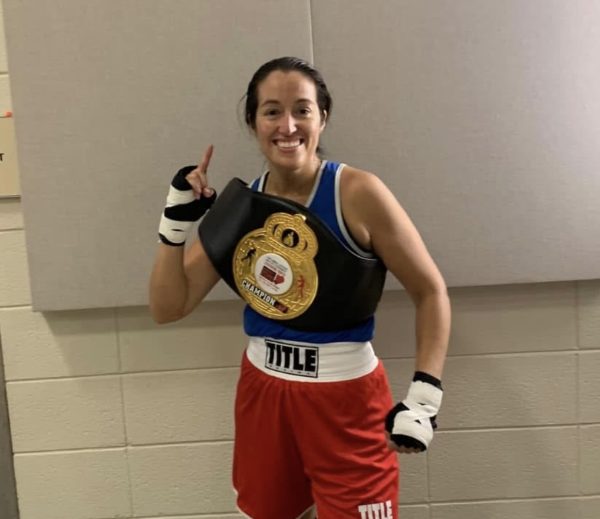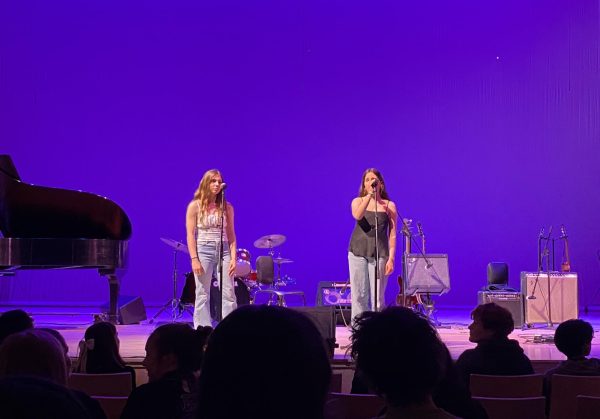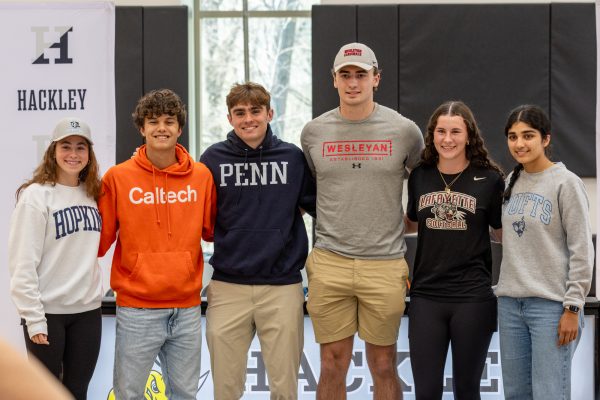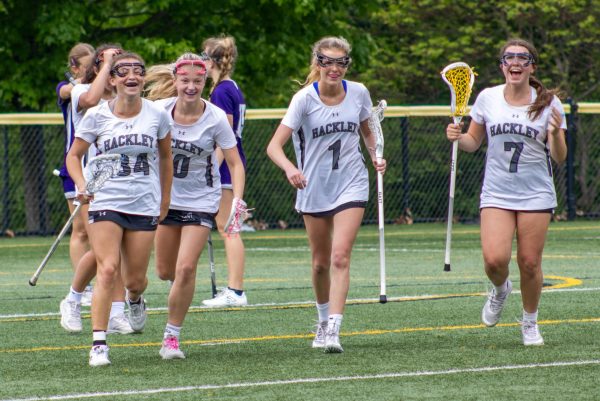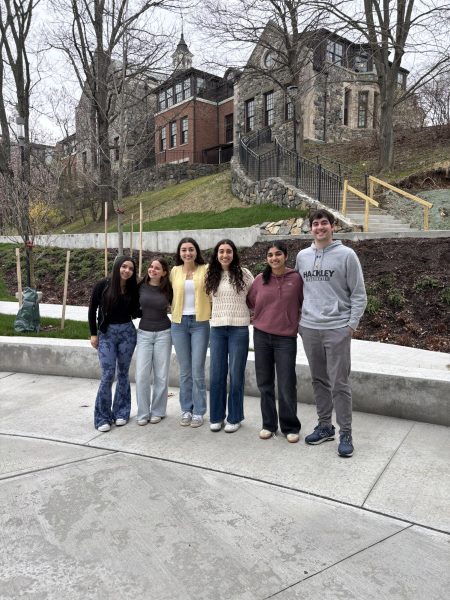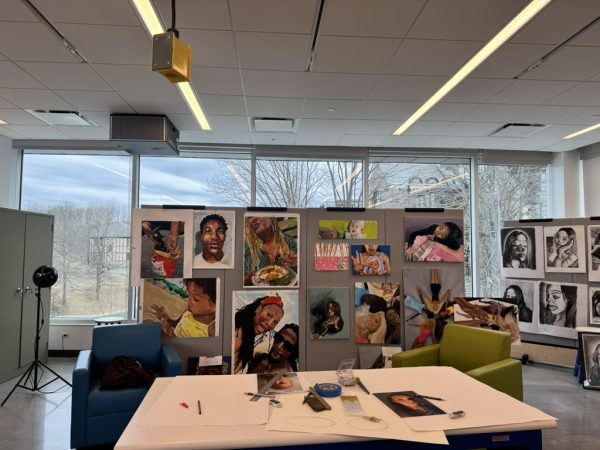Unique new clubs mark the onset of the school year
No September is complete without tables, intricate presentations, and inordinate amounts of baked goods lining the Quad. This event, the Upper School’s annual club fair, serves as an opportunity for both well-established clubs to increase their memberships and for new clubs to self-promote.
Every year, however, a junior or senior can walk the stretch and fail to recognize a fair number of these clubs. Many more are formed each fall than continue to flourish from year to year. Whether each new club will foster a lasting presence or die out after a few meetings and making it onto the founder’s college application is the ultimate litmus test for a club’s vitality.
Numerous Hackley clubs in the recent past have dissipated shortly after their club fair debut. Among these are the Hackley Entrepreneurship Club, Classics Club, Hackley Student Law Club, Pirate Club. Kyle Spencer ‘19, founder of the now-defunct Marine Biology Club, explained that “managing club time is often hard with the workload at Hackley,” evidencing a clear tension between the desire to sustain a club and the feasibility of doing so.
This year’s cohort of new clubs includes Hackley Houseplants, Hackley Outdoors Club, Lake Keepers, Market Madness, and Ping-Pong Club. Notably, like new clubs before them that have failed, these four capitalize on a niche interest.
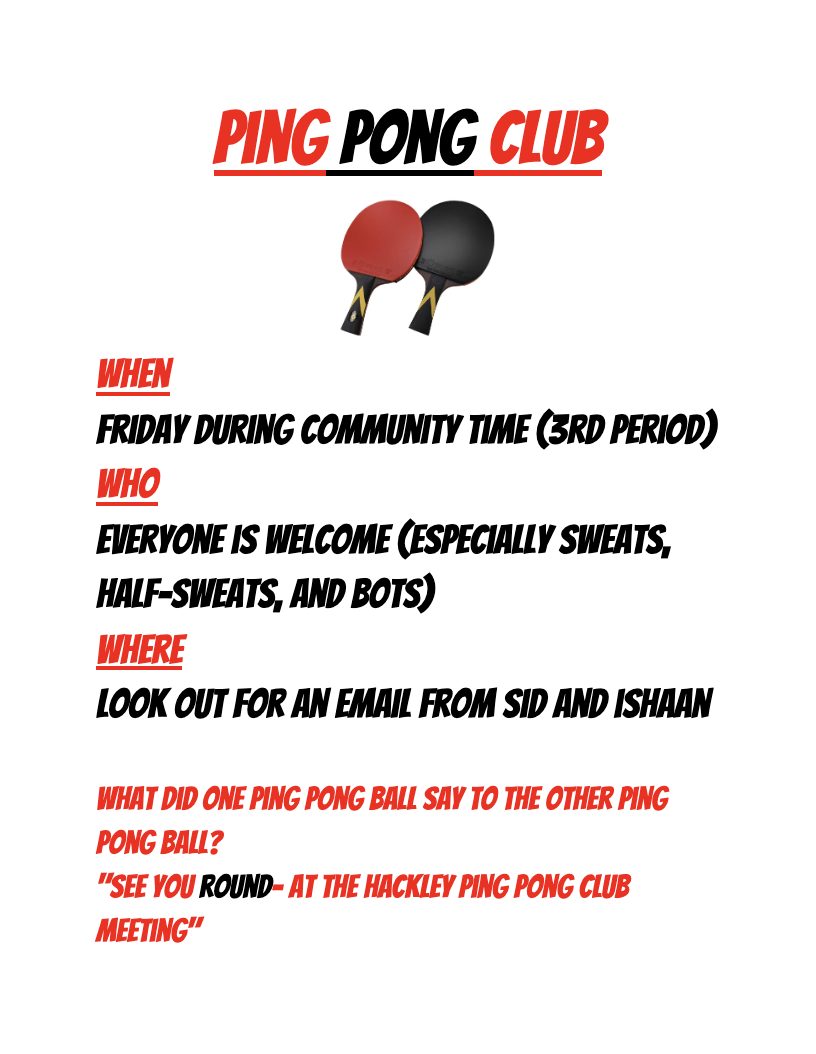
So, what do these clubs really do, or rather, plan on doing?
Hannah Leighton and Will Rifkin, the founders of Hackley Houseplants, decided to found the club not only to share their love for these plants with others both in and outside of the plant community, but also to teach those as to the importance, care, and the number of uses for these plants. With a field trip to the Botanical Garden in the works, along with plant cuttings, exchanges, and more, these two juniors feel determined to share these interests with others and ensure their club’s vitality.
“One problem many new clubs face is low member enthusiasm. We plan to combat that by giving away plants early in the year and showing how to take care of these new plants throughout the rest of the year,” they said. “The other problem many clubs face is a lack of club-focused community times past the first trimester, which we will avoid by occasionally hosting meetings during universal frees,” they added, describing limitations in both interest and resources.
Sid Shah, co-founder of the Ping Pong Club along with Ishaan Ratliff, explained that this similar mindset of using universal frees to host club meetings and competitions will ensure the continued existence of their club. At least twenty or so individuals, all boys, frequently demonstrate their commitment–playing ping-pong with a makeshift net across the Harkness tables in history and English classrooms.
“So many people want to play ping-pong and do, and by formalizing an already present interest, we can ensure our club continues throughout this year and the following ones,” said Sid.
These two clubs, alongside Hackley Steppin’, Hackley Lake Keepers, and more, aim to flourish by both capitalizing on a niche interest and using the benefits of clear goals and planning ahead to their advantage. Perhaps, more club meeting times integrated into the school schedule could provide more opportunities for meetings and therefore make it easier for clubs to avoid dying out.



